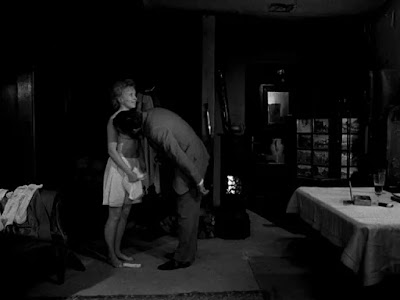Polaco | Subs: Castellano/English/Français (muxed)
103 min | x264 768x576 | 3000 kb/s | 224 kb/s AC3 | 24 fps
2,27 GB
Mi siglo XX
El primer largometraje de la directora húngara Ildikó Enyedi es esta
particular visión de los inicios del siglo XX. Sus protagonistas, dos
gemelas huérfanas nacidas el mismo día en el que Edison muestra por
primera vez al mundo la bombilla, son separadas de niñas y adoptadas por
dos familias distintas, llevando a consecuencia de ello vidas
diametralmente opuestas. Mientras Dóra ha alcanzado un estatus social
elevado y se divierte jugando con sus pretendientes, Lili se encuentra
inmersa en un complot revolucionario anarquista y se prepara para
cometer un atentado. Sus caminos volverán a cruzarse cuando coincidan en
el mismo tren y sobre todo a raíz de la aparición de un hombre seductor
y misterioso llamado Z.
[...] Mi siglo XX se destaca como una
obra inusualmente ambiciosa e inteligentemente planteada teniendo en
cuenta que es un debut en el largometraje, que no tiene problema en
experimentar con su narrativa y que rebosa de agudeza, sátira,
sensualidad y una visión sociopolítica clara y enérgica. Destaca en ello
por una propuesta claramente centrada en una dualidad femenina que se
ilustra a través de sus dos protagonistas, desarrollando los puntos de
vista de Dorá y Lili y sus diferentes maneras de entender la vida, sus
prioridades, sus perspectivas ideológicas e incluso la forma de llevar
su sexualidad. Podría decirse que Z, un personaje plano que parece ir a
merced de los acontecimientos, es el nexo común que permite al
espectador explorar sus posturas y conocerles más a fondo como
personajes incidiendo en aspectos que van más allá de su superficie. (Todo el texto tomado de la crítica de Javier Abarca en Cine Maldito)
My 20th Century
The film begins with the birth of twin girls to a Budapest mother
(Dorothy Segda) in 1880. Orphaned early on, the girls are forced to sell
matches on the streets until both are adopted by two separate families.
Flash forward to 1900: Having lost track of one another, the grown-up
twins take separate compartments on the Orient Express. One of the girls
(Segda again) has become the pampered mistress of a wealthy man; the
other (Segda yet again) is a bomb-wielding anarchist. Director Ildiko
Enyedi evidently intended My 20th Century as an allegorical statement
concerning the status of women in the modern mechanical age. The
experiences of the twins are interspersed with shots of Thomas Edison, whom we see at the beginning of the film perfecting his
incandescent light bulb on the very day that the sisters are born. The
more technological advances made by Edison, the more confused the twins
become in establishing their own roles in an advancing civilization.
Adroitly avoiding cut-and-dried symbolism, Ildiko Enyedi keeps the
audience wondering what she's up to by including surrealistic
vignettes.
In 1879, as Thomas Alva Edison was lighting up Menlo Park with his first
demonstration of the incandescent light bulb, far away in Europe, a
dark and joyless childhood was beginning for identical twins Dora and
Lili in Budapest. Orphaned and separated as young girls by a quirk of
fate, their lives take very different directions. Dora becomes a
successful con woman, while Lili joins a group of anarchist
revolutionaries. Unknown to each other, their paths cross again briefly
on New Year’s Eve in 1899 on the Orient Express. They will ultimately be
linked by Z, a cosmopolitan gentleman who has no idea that he is
actually wooing two women, not one …This first feature by director
Ildikó Enyedi, who won the Golden Bear at the 2017 Berlinale for Testről és lélekről (On Body and Soul),
is a bit like a puzzle. It presents the audience with a romantic love
story, a poetic fairy tale, an erotic riddle – and at the same time, an
inventory of new technology – electricity, the telegraph, film.
Conceived as an homage to silent movies and shot in black-and-white, Az én XX. századom references many silent film techniques and tricks. (Berlinale)









.gif)
No hay comentarios.:
Publicar un comentario